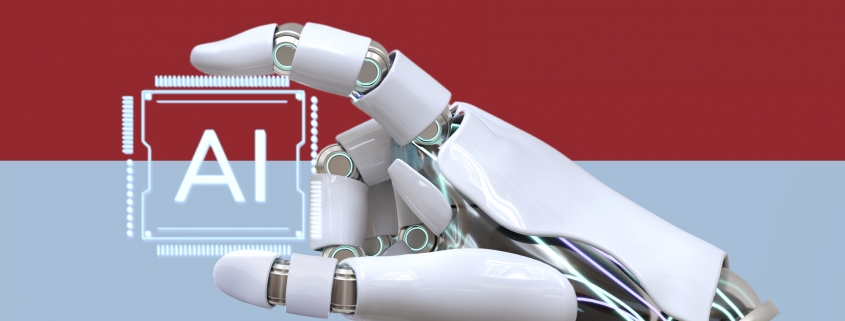Harnessing the Future: The Rising Tide of AI Development in Indonesia
The use of AI in Indonesia has started since the 1980s. However, it was limited to certain uses, such as oil and gas companies, as well as aviation and logistics. This is because the technology at that time was still very expensive. AI itself is a field of technology which requires a lot of resources to develop. Not only in terms of cost, but also human expertise, and the level of complexity of the technology behind it.
The results of EDBI and Kearney research, artificial intelligence is predicted to continue to grow in Southeast Asia and increase Indonesia’s Gross Domestic Product (GDP) by USD 366 billion by 2030. Indonesia is also said to have quite a number of scientific publications related to AI and is one of the largest in Southeast Asia. It was found that the biggest challenge for Indonesia and countries in Southeast Asia to develop AI technology is the lack of human expertise who are able to master AI technology, in Indonesia itself the first challenge faced by Indonesia in developing AI is the lack of skilled and experienced human resources in the field. Although there are many educational programs that offer AI courses, there are still many who do not fully understand this technology. In addition, the lack of infrastructure and technology that supports AI development is also an obstacle for industry players in Indonesia.
However, on the other hand, Indonesia has great potential in developing AI. For example, Indonesia has a large and diverse amount of data that can be used as material for training AI algorithms. In addition, Indonesia also has a number of AI startups that are starting to emerge in various sectors such as healthcare, e-commerce, logistics, and others. With the support of the government and the business community, Indonesia has the potential to become the center of AI technology development in Southeast Asia.
The Indonesian government has also taken a number of steps to encourage the development of AI in Indonesia. In 2019, the government launched the National Strategy for Artificial Intelligence (NHS) which aims to develop an inclusive and sustainable AI ecosystem. One of the policies issued is the AI Accelerator Program which provides support for AI startups in Indonesia.
In order to face the challenges and take advantage of the opportunities, cooperation between the government, industry, and academia is needed. The government needs to continue to encourage the development of human resources and infrastructure that support AI development. Meanwhile, industry and academia can work together to develop innovative AI products and services that are relevant to market needs.
Concern about the development of AI also arises along with the development of the technology. This is because artificial intelligence is proven to mimic the way humans think and do many human tasks. This is a challenge in the pros and cons of artificial intelligence.
AI development in Indonesia still has a lot of potential and challenges that need to be faced. However, with the support of the government, industry, and academia, Indonesia has the potential to become the center of AI development in the Southeast Asia region.
Hebronstar Strategy Consultants
Rezanda Suteja / Associate Consultant
Sources :
Wijaya, F. (n.d.). Perkembangan AI di Indonesia: Tantangan dan Peluang [Blog post]. Kompasiana. Retrieved from https://www.kompasiana.com/faqihwijaya/644b68c3a7e0fa73e64061d7/perkembangan-ai-di-indonesia-tantangan-dan-peluang
LinkNet. (n.d.). Artificial Intelligence: Dampak, Tantangan, dan Manfaat dalam Bisnis [Web article]. Retrieved from https://www.linknet.id/article/artificial-intelligence–dampak-tantangan-dan-manfaat-dalam-bisnis#:~:text=Perkembangan%20AI%20di%20Indonesia&text=Tercatat%20ada%20196%2C7%20juta,atau%20computing%20power%20yang%20mumpuni
Teknik UMA. (2023, April 5). Indonesia Telah Memasuki Persaingan AI [Web article]. Retrieved from https://teknik.uma.ac.id/2023/04/05/indonesia-telah-memasuki-persaingan-ai/



